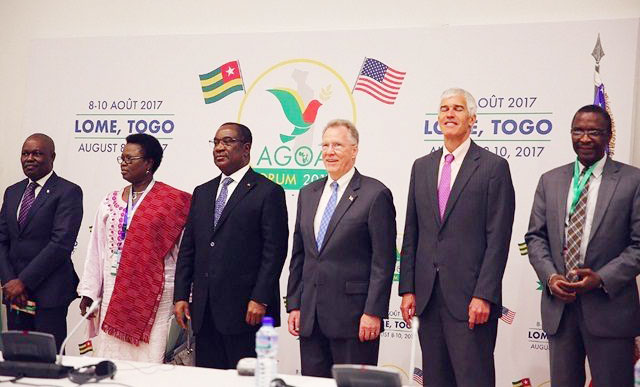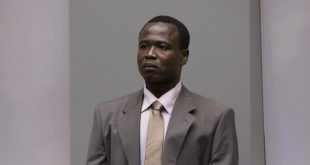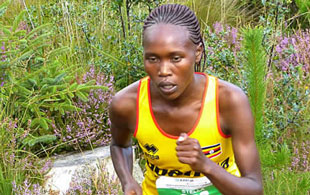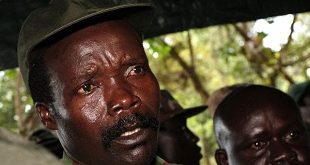
AGOA: Trade forum to showcase Trump’s Africa policy
Lome, Togo | AFP | US President Donald Trump barely mentioned Africa or trade with the continent during his whirlwind campaign and has been mostly silent about the region since taking office.
But the annual African Growth and Opportunity Act (AGOA) forum being held in the Togolese capital Lome this week will bring together top US officials and African ministers.
The gathering will finally shine a light on Trump’s policies toward the region of 1.2 billion people.
– What is the African Growth and Opportunity Act? –
It was a trade deal inked between the United States and eligible African countries nations under Bill Clinton’s presidency and enacted in 2000.
It gives 39 African nations duty-free access to the US market for about 6,500 products including textiles, cars, fruit and wine.
Those countries permitted to participate in AGOA are obliged to prove that they are making efforts to improve human rights, the rule of law and worker protections.
– Is Trump getting involved in Africa? –
Early signs were not good for the 45th president’s interest in trade with the continent.
He spoke regularly on the campaign trail about the need to renegotiate the North American Free Trade Agreement and to get a better deal with China — but Africa did not feature in his top priorities.
But he has now sent his top trade negotiator Robert Lighthizer to Lome for the two-day meeting that concludes on Thursday along with a top level negotiating team.
Trump himself will not attend the talks.
– A good deal for Africans? –
When asked if Trump’s “America first” policies would benefit African countries or simply guarantee cheap commodities for the US, State Department spokesman Brian Neubert said that Washington has “very significant interests in Africa”.
“There are opportunities for American investors in several sectors. For example in the energy sector — the opportunities are enormous. Also in agriculture,” he told AFP. “But Africa’s infrastructure has to modernise, in partnership with the US private sector.”
David Gilmour, the US ambassador to hosts Togo, told the tiny West African country that it must “continue to improve conditions for the private sector” to benefit from trade with the US.
– Could the law be changed to favour US companies? –
Trump has often hit out at perceived trade barriers and protectionist policies adopted by other countries.
If there was any change to the agreement or how it operates it is likely that it would be intended to ensure “the elimination of barriers to United States trade and investment” as detailed under the law.
The US has already forcefully warned African countries seeking to ban imports of used clothes not to do so if they want to continue benefiting from AGOA.
The ban was agreed by the six countries of the East African Community — which includes Kenya and Tanzania — in 2016 to stimulate local industry rather than relying on the importation of used garments, known locally as “okrika”.
“The AGOA criteria is very clear about not putting in place bans or restrictions on US products,” said Constance Hamilton, acting US trade representative to Africa, ahead of the Lome meeting.
She warned that the east African move put 40,000 US jobs at risk.
– What will happen in Togo? –
No significant change to the deal is expected at the Togo meeting, but US officials are likely to use the gathering to remind participating African nations not to risk Washington’s ire by curtailing the free flow of US goods and services.
Hamilton’s recent warning to east African nations not to impede exports of used US clothing follows a bitter battle between South Africa and the Obama administration over American meat exports in 2015.
Trump has also been highly critical of countries that run trade deficits with the US.
While US goods exported to Africa in 2016 were worth $22.3 billion in 2016, Washington imported $4.3 billion more from the continent, according to the US Census Bureau — a deficit that US officials will be keen to shrink.
 The Independent Uganda: You get the Truth we Pay the Price
The Independent Uganda: You get the Truth we Pay the Price



